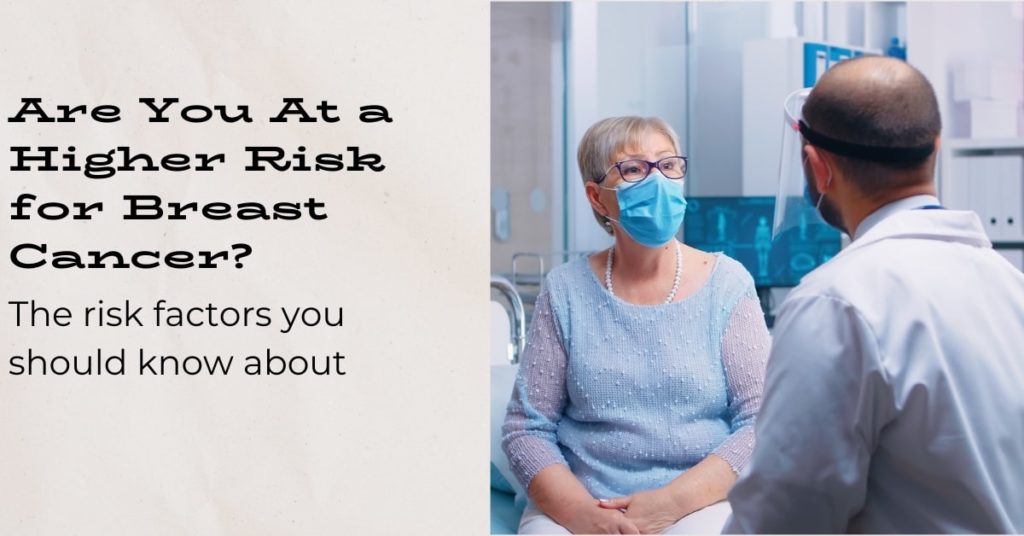Many women do not give much thought to their risk of developing breast cancer until they begin annual mammograms in their forties. Usually, it’s around this time that people begin to pay more attention to their health. Understanding your individual situation is just as important as being proactive with early detection. Here, we’ve listed the most significant signs to look out for; having a few of these combined can mean that you are at high risk for breast cancer.
Lifestyle Risk Factors
Remember that all unhealthy lifestyle choices can be changed and it will help lower your chances of developing many types of illnesses- not just cancer. Listed below are those that have been associated with breast cancer.
- Regular alcohol consumption: Studies have found an increased risk even among light drinkers. It’s also associated with cancer of the esophagus, liver, colon, throat and mouth.
- Being overweight. A BMI of 25 or above usually indicates that you are overweight. Carrying excess weight after menopause contributes to higher estrogen levels, a main contributor to the development of breast cancer.
- Sedentary lifestyle. According to this study, physically active women had a 12-21% lower risk than those who were not very active. The American Cancer Society recommends that women get at least 4 hours of moderate exercise (like brisk walking) per week to reap the benefits.
- Having children after age 30. Researchers have concluded that women in their 20s have fewer breast cells called mammary gland progenitor cells, which are responsible for making new cells that produce milk. Having less of these cells means less risk that they will mutate to become cancerous.
- Birth control. The research is fuzzy when it comes to this one. Both low and high doses of hormone-based birth control pills have been shown to increase risk slightly, Though other types of birth control like IUDs, rings, and patches have limited research, in theory, anything with hormones can promote cancer growth.
- Post-menopausal hormone therapy. When it comes to hormone therapy for relieving menopause symptoms, most women used estrogen plus progestin (MHT), since estrogen alone has been linked to uterine cancer. After five years of taking estrogen plus progestin, women are more likely to be diagnosed with breast cancer. With every year, the risk goes up slightly.
Uncontrollable Risk Factors
- Genetic predisposition. If you have a family member who has dealt with breast cancer, you’re predisposed to have it yourself. About 45% of women with a BRCA1 mutation will develop breast cancer by age 70, while 55%-65% with a BRCA2 mutation will develop it. Both mutations on different genes can mean a very high risk of breast cancer occurring.
- Dense breasts. Researchers aren’t sure why dense breasts are associated with higher rates of cancer, but cancer is harder to spot on the mammograms of dense breasts.
- Previous radiation therapy on the chest. Any time of radiation exposure has the ability to mutate the process of normal cell production and result in cancer cells forming.
- Age. Most breast cancers are diagnosed after age 50.
- Race. White women are at a high risk for breast cancer with an average lifetime risk of 13%. Though the rates are slightly lower among black women, they are more likely to be diagnosed at an earlier age. More on race and cancer risk can be found here.
Staying informed about possible risk factors should be empowering, not scary. With new research, more preventative measures can be taken into account and reduce the rates of later stage cancer.
